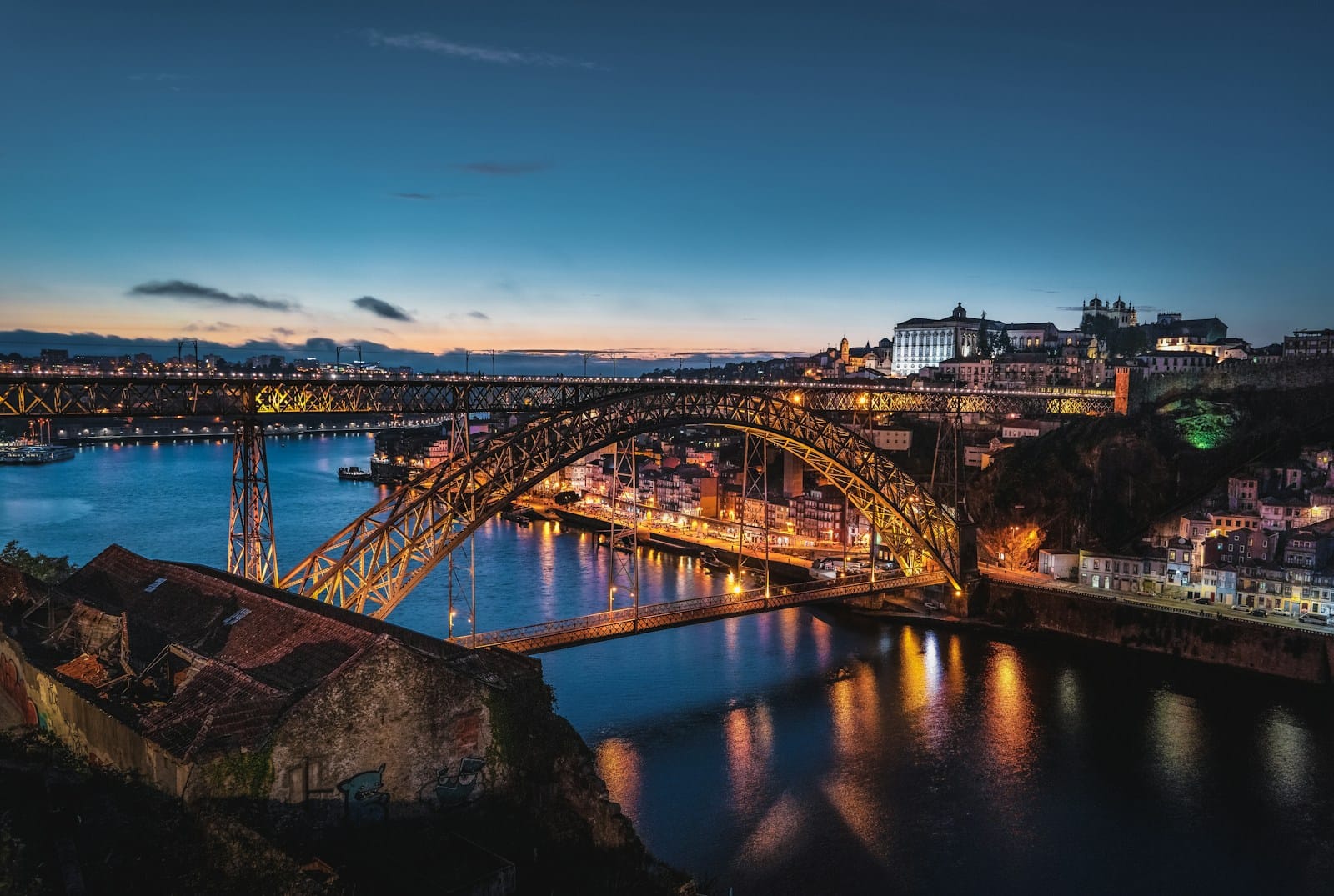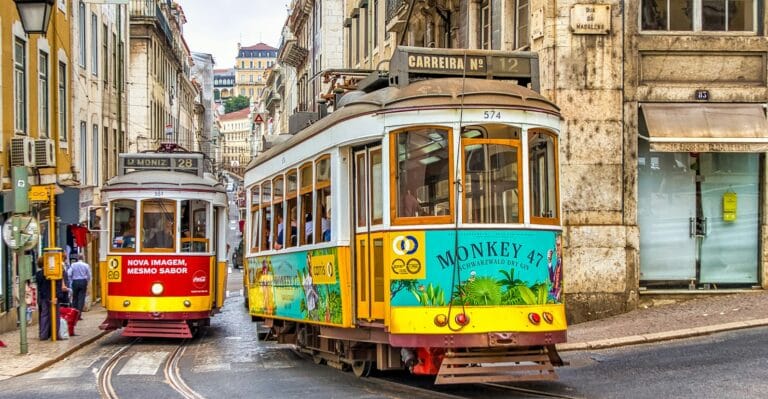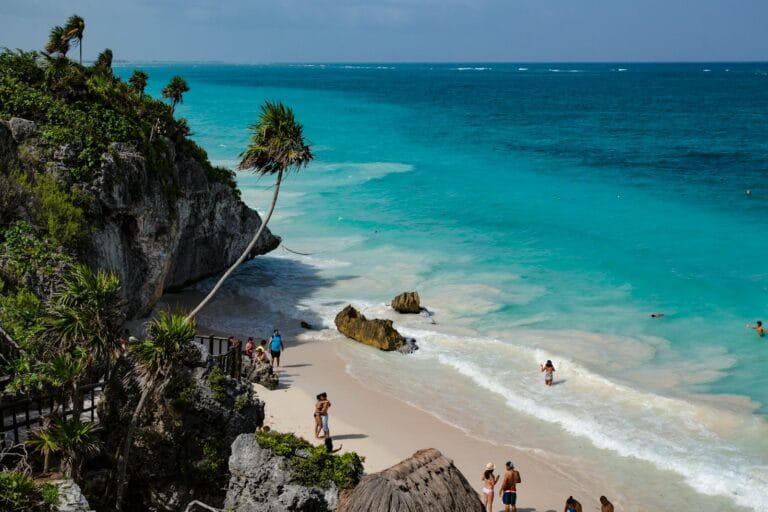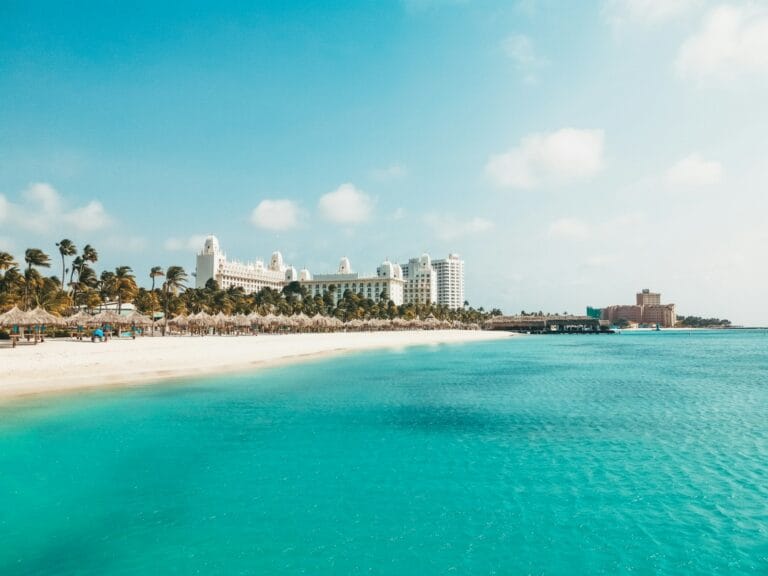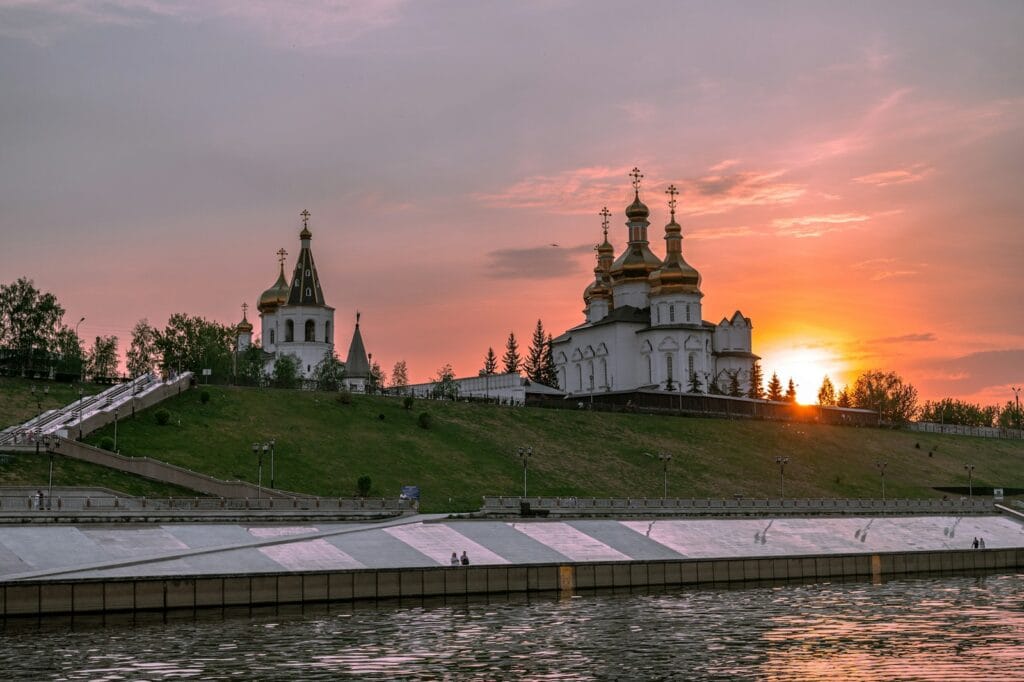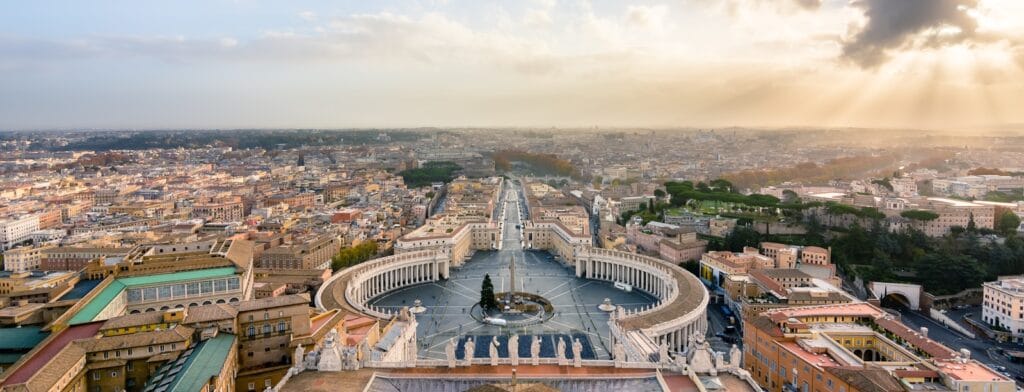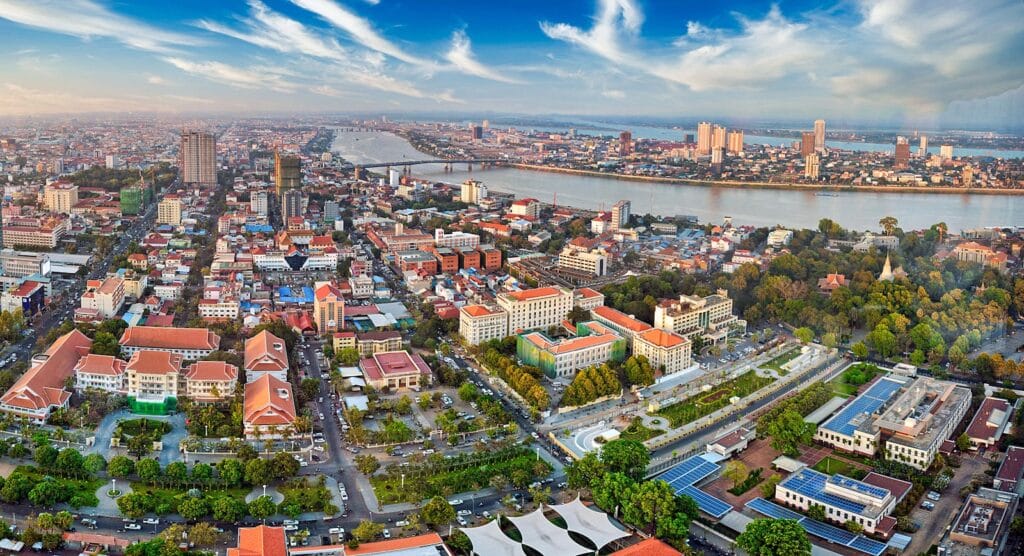Portugal Travel Guide: Coastlines, Culture & Timeless Cities
Intro to Portugal Travel Guide
Golden beaches, soulful music, azulejo-tiled alleys, and seafood feasts — Portugal is a traveler’s dream where tradition meets tranquility. From the cobbled hills of Lisbon to the vine-covered slopes of the Douro Valley, Portugal delivers diverse experiences without overwhelming distances.
Start planning with curated Portugal tours, food walks, and river cruises — ideal for culture lovers, sun seekers, and heritage travelers.
💡Quick Facts:
Destination: Portugal
Continent: Europe
Country: Portugal
Area: 92,212 km²
Population: ~10.2 million
Density: ~111 people/km²
Capital: Lisbon
Regions/Subregions: Algarve, Alentejo, Centro, Norte, Lisbon Region, Azores, Madeira
Language(s): Portuguese (official); English widely spoken in tourist areas
Currency: Euro (EUR, €)
Time Zone(s): Western European Time (WET, UTC+0); Western European Summer Time (WEST, UTC+1 in DST)
Airports: Lisbon Humberto Delgado (LIS), Porto (OPO), Faro (FAO), Funchal (FNC), Ponta Delgada (PDL)
Climate: Mediterranean with Atlantic influence — hot summers, mild winters
Known For: Algarve beaches, Lisbon’s hills, Port wine, fado music, azulejos, surfing, UNESCO sites
🛂Arrival Info:
– Schengen Area member
– Visa-free access for EU/EEA and over 60 other nationalities (incl. U.S., Canada, UK, Australia)
– 90-day stay within any 180-day period
– Schengen visa required for others → Portugal Visa Info
– Passport validity: 3 months beyond intended departure
💉Health Info:
– No mandatory vaccines for entry
– Recommended: Hepatitis A, Hepatitis B (for longer stays), Tetanus
– Strong public healthcare, particularly in Lisbon, Porto, and Coimbra
– English-speaking doctors common in expat/tourist zones
– Emergency care widely available
✅ Check travel insurance options for travel emergencies, delays, and medical needs abroad — get coverage here
✅ Stay Informed with Official Updates: World Health Organization – International Travel and Health | Travel health updates
🚨Travel Advisory:
– Very safe, low violent crime rates
– Common petty theft in tourist areas (pickpocketing)
– Exercise Normal Precautions
– Wildfire risk in rural regions during summer months
✅ Stay Informed with Official Updates: US Travel Advisory | UK Foreign Travel Advice
📅Holidays:
– April 25: Freedom Day – commemorates end of dictatorship
– June 10: Portugal Day – national pride, cultural events
– December 1: Restoration of Independence
– October 5: Republic Day
– December 25: Christmas – family-centered, closures expected
💰Money Matters:
– Currency: Euro (€)
– Widespread ATM access; bank withdrawals often offer best exchange rates
– Credit cards accepted in most places; carry cash in rural towns
– Tipping: Optional but appreciated (5–10%)
– Duty-Free (non-EU visitors): 1L spirits, 2L wine, 200 cigarettes, €430 goods allowance
✈️Airports:
– Lisbon Airport (LIS): Portugal’s largest, major European hub
– Porto (OPO): Northern gateway, increasing intercontinental routes
– Faro (FAO): Ideal for Algarve visitors
– Funchal (FNC – Madeira), Ponta Delgada (PDL – Azores): Regional access to islands
– Budget carriers (Ryanair, easyJet) operate extensively
✅ Delayed or canceled flight? Check if you’re eligible for compensation
🚍Transport:
– Trains: CP (Comboios de Portugal) connects major cities and towns
– Metro in Lisbon and Porto; trams and buses in urban areas
– Intercity buses: Rede Expressos, FlixBus
– Taxis: Use apps like Bolt or FreeNow
– Drive on the right; highways are well maintained
– Toll roads are common — electronic pass recommended for rental cars
✅ Book reliable airport transfers and in-city rides in advance. Reserve your ride here
📶Connectivity:
– SIM cards widely available (Vodafone, MEO, NOS)
– eSIMs supported by major networks; Airalo also available
– 4G/5G coverage is strong in cities and even coastal towns
– Free Wi-Fi common in cafés, hotels, and airports
✅ Stay connected abroad with affordable eSIM data packs. Get your eSIM here
📜Laws & Etiquette:
– Legal drinking age: 18
– Beachwear only at the beach — cover up in towns
– LGBTQ+ friendly, with full rights and social acceptance
– Quiet hours often observed in residential areas
– Avoid loud conduct or intoxication in public
– Smoking restricted in most indoor venues
🛡️Emergency Info:
– Emergency number: 112 (all services)
– Police: PSP (urban) & GNR (rural)
– Travel insurance highly recommended for activities like surfing, hiking, and boating
✅ Use embassy locator tools: Embassies Worldwide
🌦️Weather:
– Spring (Mar–May): Mild and green, 15–22°C
– Summer (Jun–Aug): Hot and dry, 25–35°C inland, cooler on the coast
– Autumn (Sep–Nov): Warm early, rainy later — grape harvest season
– Winter (Dec–Feb): Mild (10–15°C), wetter in north
– Best time: April–June, September–October
✅ Stay prepared—check the weather forecast for your destination — Weather Forecast
Portugal by Region – Where to Go
Each region of Portugal offers a distinct rhythm — from windswept coastlines to wine country retreats.
Lisbon Region
Portugal’s vibrant capital sits along the Tagus River with pastel viewpoints, tram-lined streets, and Fado bars echoing into the night. Explore Belém’s monuments, Alfama’s historic lanes, and day trip to Cascais or Sintra’s palaces.
Northern Portugal
Centered around Porto, this region boasts Baroque churches, port wine cellars, and UNESCO-listed valleys. Hike in Peneda-Gerês National Park or cruise along the Douro River past terraced vineyards and stone villages.
Central Portugal
Historic Coimbra and university vibes contrast with medieval walled towns like Óbidos and Batalha’s monastery. Inland, mountain ranges like Serra da Estrela offer hiking, snow in winter, and rustic food.
Alentejo
Stretching from the Spanish border to the Atlantic, Alentejo is a slow-paced region of cork forests, hilltop castles, and whitewashed towns like Évora and Monsaraz. Expect fewer crowds and hearty food.
Algarve
Portugal’s sun-soaked southern coast is famous for dramatic cliffs, golden beaches, and whitewashed fishing towns like Lagos and Tavira. Great for surfers, retirees, and family beach holidays alike.
Madeira
This lush volcanic island in the Atlantic is perfect for hikers, garden lovers, and foodies. Funchal offers city charm, while the island’s levadas (irrigation channels) create stunning nature trails.
Azores (Açores)
An archipelago of nine islands, the Azores are a paradise of crater lakes, thermal springs, and whale watching. Visit São Miguel for green pastures and geothermal stew or Pico for Portugal’s highest peak.
Top Places to Visit in Portugal
Discover Portugal’s top highlights — grouped by cultural, natural, and coastal appeal.
Cultural Capitals
- Lisbon – Portugal’s capital of trams, tiled facades, and layered neighborhoods like Alfama and Bairro Alto.
- Porto – Famous for port wine, riverfront charm, and steep hills lined with art nouveau cafés and churches.
- Coimbra – A scholarly city home to Portugal’s oldest university and fado sung by students.
Nature Escapes
- Douro Valley – Wine terraces cascading into the river make this a must-see for food and wine lovers.
- Peneda-Gerês National Park – Portugal’s only national park blends waterfalls, granite peaks, and Iberian wildlife.
- Serra da Estrela – Hike to the mainland’s highest point and taste cheese from remote mountain villages.
Historic Sites
- Sintra – A fairytale town with pastel palaces, Moorish castles, and dense forests just outside Lisbon.
- Évora – Roman ruins, Gothic chapels, and bone-lined ossuaries tell the tale of Portugal’s past.
- Tomar – Home to the Knights Templar and one of Portugal’s most mystical convents.
Island Adventures
- Funchal (Madeira) – Ride cable cars, walk botanical gardens, and enjoy Madeira wine.
- Sete Cidades (Azores) – Twin volcanic lakes in an emerald crater — a jaw-dropping must-visit on São Miguel.
- Pico Island – Climb Portugal’s highest volcano or tour black-lava vineyards.
Seaside Getaways
- Lagos – Grottos, sea caves, and golden beaches with plenty of nightlife.
- Tavira – A quieter Algarve town with slow rivers, salt pans, and ferries to sandbank islands.
- Nazaré – World-famous for record-breaking waves and surf competitions.
How to Choose Where to Go in Portugal
Curate your route based on the experiences you crave.
For cities and culture, combine Lisbon, Porto, and Coimbra — each offers history, music, and walkable charm.
If you want beaches and ocean air, head south to the Algarve or explore quieter shores like Alentejo’s Comporta.
For nature and adventure, pair the Azores or Madeira with Gerês or Serra da Estrela on the mainland.
Wine lovers should include the Douro Valley, while castle fans will love Sintra and Óbidos.
How to Get Around Portugal
Transport in Portugal is reliable and easy to navigate.
Trains and Buses
Comboios de Portugal runs efficient trains between cities like Lisbon, Porto, Coimbra, and Faro. Buses reach smaller towns with companies like Rede Expressos or FlixBus.
Car Rentals
Great for exploring Alentejo, the Douro Valley, or mountain areas. Watch for toll roads and narrow lanes in old towns.
Flights & Ferries
Fly TAP Air Portugal or SATA to reach Madeira or the Azores. Ferries connect some Azorean islands and Madeira-Porto Santo.
Urban Transport
Lisbon and Porto have metros, trams, and buses. Taxis and apps like Bolt or Uber are widespread. Walking is common in historic centers — just mind the hills!
Travel Budget & Costs in Portugal
Portugal is more affordable than most Western European countries.
Average Daily Costs
– Budget: $40–$60/day (hostels, bakery meals, public transport)
– Mid-range: $90–$140/day (boutique stays, restaurant meals, tours)
– Luxury: $200–$300/day (5-star hotels, fine dining, private drivers)
Sample Prices
– Espresso (bica): $1
– Meal with wine: $10–$25
– Train Lisbon to Porto: ~$30
– Museum tickets: $3–$10
– Mid-range hotel: $80–$130/night
Saving Tips
Eat at local tascas, get multi-attraction city cards, use trains for long distances, and travel shoulder seasons (spring or fall) for better rates.
Best Time to Visit Portugal
Portugal is a year-round destination, but some seasons are better suited for certain experiences.
Spring (March–May)
Wildflowers bloom, crowds are low, and temperatures are mild — perfect for walking tours and countryside stays.
Summer (June–August)
Ideal for beaches and festivals. Expect crowds in Lisbon, Porto, and the Algarve. Book early and stay cool.
Autumn (September–October)
Grape harvest season in the Douro Valley, warm seas, and smaller crowds — a great time for food and wine lovers.
Winter (November–February)
Mild in the south and on the islands. Great for off-season deals and festive markets. Inland can be chilly or snowy.
Must-See Experiences in Portugal
Discover unique things to do in Portugal that blend heritage, flavor, and nature.
Cultural & Historical Activities
– Ride Tram 28 through Lisbon’s oldest neighborhoods
– Tour Porto’s port wine lodges and taste local vintages
– Climb the Moorish Castle in Sintra and wander Pena Palace
Outdoor & Nature Experiences
– Hike around Sete Cidades or walk Madeira’s levadas
– Swim in natural lava pools in the Azores or Madeira
– Surf the waves of Ericeira or Nazaré
Food & Market Tours
– Join a food walk through Lisbon’s Time Out Market
– Visit a traditional fish market in Olhão
– Learn to cook bacalhau or pastéis de nata in a local kitchen
Festivals & Local Events
– São João Festival in Porto (June) — dancing, fireworks, and garlic-hitting fun
– Festa dos Tabuleiros in Tomar (every 4 years)
– Lisbon’s Santo António Festival with grilled sardines and street parties
Book immersive Portugal tours and experience unforgettable things to do in Portugal — from coastal hikes and village feasts to wine tastings and palatial gardens.
Best Travel Itineraries in Portugal
Use these curated Portugal itineraries to help streamline your travel planning.
7-Day City & Coast Explorer
Lisbon → Sintra → Cascais → Porto
– Spend 3 days in Lisbon exploring Alfama, Belém, and Bairro Alto
– Day trip to Sintra for palaces and coastal cliffs
– Stop in Cascais before heading north by train to Porto for river views and wine cellars
10-Day Cultural Loop
Porto → Douro Valley → Coimbra → Óbidos → Lisbon
– Start in Porto and enjoy 2 days of food and culture
– Spend 2 nights in the Douro Valley visiting wineries
– Stop in Coimbra for a university tour
– Explore Óbidos and its medieval charm
– End in Lisbon for museums, music, and riverfront strolls
14-Day Nature & Island Adventure
Lisbon → Azores (São Miguel) → Madeira → Porto
– Fly from Lisbon to the Azores for 4 days of crater lakes and thermal springs
– Head to Madeira for 3–4 days of levada walks, botanic gardens, and seafood
– Return to Porto for the last leg — wine tastings and local bites
Local Cuisine & Culinary Experiences
Portugal’s culinary scene is rich, regional, and full of simple yet memorable flavors.
Essential Dishes to Try
– Bacalhau à Brás: Salt cod shredded with potatoes, eggs, and parsley
– Caldo Verde: Kale soup with chouriço, popular in the north
– Cataplana de Marisco: Seafood stew from the Algarve, cooked in a clam-shaped pot
– Francesinha: Porto’s iconic sandwich layered with meat, cheese, and beer sauce
– Arroz de Marisco: Seafood rice stew often likened to Portuguese paella
– Pastéis de Nata: Creamy custard tarts with flaky pastry — a Lisbon must-eat
– Queijo da Serra: Rich mountain cheese from Serra da Estrela
Foodie Experiences
– Explore Lisbon’s Time Out Market or traditional tasca districts
– Take a wine tour in the Douro or visit port cellars in Vila Nova de Gaia
– Join a cooking class to make custard tarts, seafood stews, or regional dishes
– Visit Madeira’s Mercado dos Lavradores for tropical fruit and artisan snacks
Taste your way through Portugal with seafood markets, vineyard tastings, and soulful bites from north to south.
Travel Safety & Cultural Etiquette in Portugal
Portugal is one of Europe’s safest and friendliest countries to visit.
Safety Tips
– Petty theft can occur in touristy areas, so keep an eye on your bags
– Roads are generally safe; drivers are fast but respectful
– Tap water is safe across the country, including the islands
– Always use marked taxis or rideshare apps — unlicensed taxis may overcharge
Cultural Norms
– Greet people with a handshake or cheek kisses (two if familiar)
– Mealtimes are later — lunch after 1pm, dinner after 8pm
– Don’t rush meals; meals are social and often leisurely
– Tipping is not obligatory but appreciated (5–10%)
– Dress modestly when visiting churches or religious sites
Language Tips
– Portuguese is the official language; English is widely spoken in cities and tourist areas
– Avoid speaking Spanish unless fluent — it may offend some locals
– Learn a few phrases like “bom dia” (good morning) or “obrigado/a” (thank you)
Where to Go Next – Pair Portugal with These Destinations
Portugal connects easily with several nearby countries and island escapes.
– Spain: Madrid and Seville are quick flights or scenic road trips away.
– Morocco: Fly to Marrakech or Casablanca in under 2 hours for a total culture shift.
– France: Combine Lisbon with Paris for a romantic two-country trip.
– Italy: Excellent pairing with Portugal’s wine and food culture — especially via budget flights.
– Cape Verde: For a more exotic extension, hop from Lisbon to these Portuguese-speaking Atlantic islands.
Guides to Take You Further with this related guides:
Final Planning Checklist for Portugal
Use this prep checklist to make your Portugal trip smooth and stress-free.
- Confirm your itinerary: cities, coastal stops, or islands
- Book accommodations early for summer and festival seasons
- Reserve Portugal tours and key experiences like Douro wine tastings or Sintra day trips
- Download Google Maps offline and local transit apps (Metro Lisboa, Comboios de Portugal)
- Arrange SIM or eSIM data options if staying connected matters
- Check passport validity and confirm visa-free entry for your nationality
- Pack for a variety of climates — cooler evenings inland and breezy coasts
- Carry euros and a no-fee international card (contactless is common)
- Learn basic Portuguese greetings to connect better with locals
- Back up travel docs and scan important IDs digitally
Explore Portugal with Confidence
Whether you’re sipping wine in the Douro, surfing the waves in Nazaré, or wandering stone villages in Alentejo, Portugal invites you to slow down, savor, and stay a little longer. Its small size hides a vast spectrum of landscapes, cuisines, and traditions — all waiting to be explored.
For more expert travel tips, practical strategies, and trusted tools — visit our Homepage and get inspired for your next trip.

